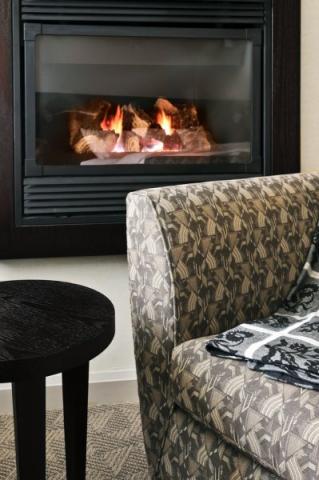Carbon monoxide poisoning can kill - reduce your risk of exposure

To mark the start of Carbon Monoxide Awareness Week (21- 25th November 2011), the Public Health Agency (PHA) is advising people to have their fossil fuel and wood burning appliances - such as boilers, heaters and cookers - checked by an appropriately registered engineer before the winter sets in, to reduce the risk of carbon monoxide (CO) exposure. CO alarms are also recommended for every home, however, they should not be used as a substitute for regular servicing of appliances.
CO poisoning can be fatal and affect anyone. However, children, students, the elderly, pregnant women and anyone with heart or breathing problems are more vulnerable to its effects.
CO is produced when fossil fuels such as gas, coal, oil, wood, petrol and paraffin burn without enough oxygen. It is a colourless, tasteless, odourless gas that is non-irritating, and as a result can be very hard to detect, therefore the PHA also urges people to be vigilant for the signs and symptoms of carbon monoxide poisoning. Symptoms include; headaches, nausea and vomiting, exhaustion, drowsiness, dizziness and lightheadedness, ‘flu like’ symptom, palpitations (feeling your heart beat oddly), chest pain and losing consciousness.
Dr Maureen McCartney, Consultant in Health Protection, PHA, advised: “Carbon monoxide poisoning can be fatal and can also cause long-term health problems if victims are exposed to low doses over a long period of time. The signs and symptoms of carbon monoxide poisoning are often mistaken for other illnesses, such as food poisoning or flu – the symptoms can be similar to flu but without a raised temperature. Please look out for these signs and symptoms and consider if carbon monoxide poisoning could be the cause.
“Anyone who suspects they may be suffering from carbon monoxide poisoning should immediately turn off all appliances, go outside and seek medical help from a qualified healthcare professional. Appliances should not be used again until they have been serviced by a registered engineer.”
Dr Carolyn Harper, Director of Public Health for Northern Ireland, said: "Carbon monoxide poisoning causes a number of deaths and hospital admissions each year. The recent tragedies in Northern Ireland are a stark reminder that carbon monoxide can be lethal. It is vital that we are all vigilant to ensure that we are protected from its dangers. Advice on the risks and measures that can be taken to prevent carbon monoxide poisoning is available on-line from nidirect. It is essential that people take care when using appliances and ensure that they are safe and used in properly ventilated spaces."
To minimise the risk of carbon monoxide poisoning the PHA recommends the following:
• install an audible Carbon Monoxide alarm that meets British or European standards (BS Kitemark or EN 50291). These cost as little as £20.00 and can be purchased from large DIY stores and food retail stores. Alarms however, should not be used as a substitute for regular servicing of appliances;
• sweep chimneys and flues every year if you use solid fuel;
• if you are in rented accommodation ask your landlord to provide you with an up-to-date gas safety record. This is a requirement by law and is particularly important for students renting houses and flats;
• keep flues, air vents and grilles clear and ensure rooms are well ventilated.
Contact the PHA Press Office on 028 9031 1611
The guide, Carbon monoxide: are you at risk? is available to download from nidirect http://www.nidirect.gov.uk/carbonmonoxide
